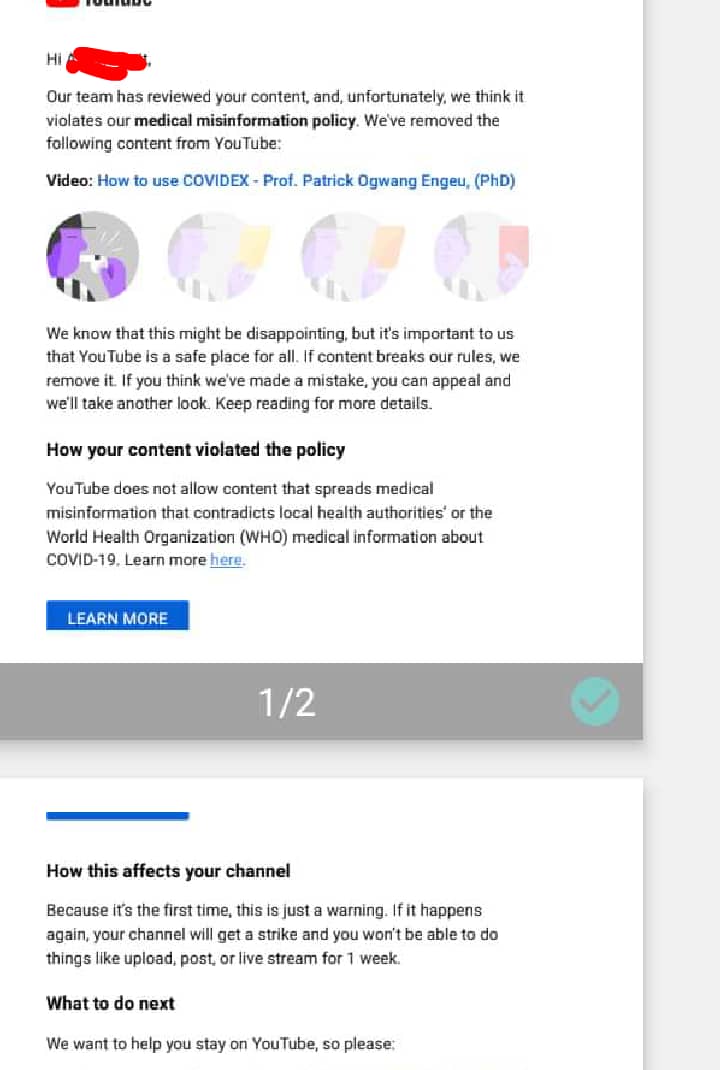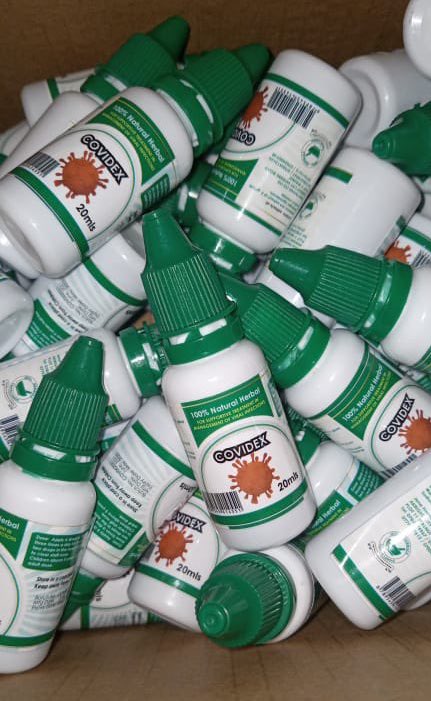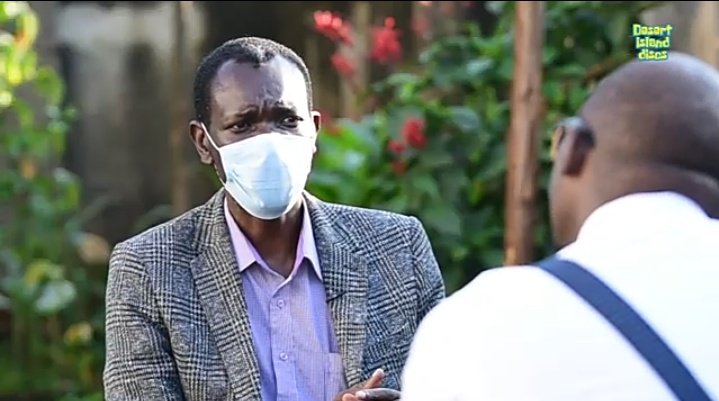KAMPALA — YouTube has deleted Prof. Patrick Ogwang Engeu’s video on COVIDEX herbal prescription over what the popular video sharing site termed as misinformation.
The popular video-sharing site which deleted the video on Tuesday, 6 July, said it does not permit content that spreads medical misinformation which contradicts local health authorities or the World Health Organization (WHO) information about Covid-19.
“Our team reviewed your content, and unfortunately, we think it violates our medical misinformation policy,” YouTube said, adding: “We’ve removed the following content from YouTube”.
Dr. Ogwang had named his video, “How to use Covidex – Prof Patrick Ogwang Engeu, (PHD).
“We know that this might be disappointing, but it’s important to us that YouTube remains a safe place for all. If content breaks our rules, we remove it,” YouTube explained

YouTube has been removing content that disputes the existence or transmission of COVID-19, promotes medically unsubstantiated methods of treatment, discourages people from seeking medical care or explicitly disputes health authorities’ guidance on self-isolation or social distancing.
Misinformation about covid-19 vaccines is abound on social media including anti-vaccine personalities on YouTube and viral videos shared across multiple platforms.
Prof. Ogwang’s video did not dismiss the vaccine but explained to users how to correctly use the much sought after Covidex which countless Ugandans say has helped alleviate symptoms of covid and recovery.
But, the World Health Organization had earlier expressed concern about Uganda’s approval of a locally made herbal treatment for COVID-19.
Uganda’s National drug authority said last week that it had approved the anti-viral Covidex for use but not as a cure for Covid.
Dr. David Nahamya, executive director of Uganda’s drug authority, said the approval followed a two-week scientific evaluation of the medicine’s safety and efficacy.
“Covidex has been notified to be sold in licensed drug outlets for supportive treatment in management of viral infections but not as a cure of COVID-19,” Nahamya said.
WHO said they had consulted researchers from nine African countries, including Uganda, in March about the use of traditional medicine to treat COVID-19, the disease caused by the coronavirus.
Dr. Solome Okware of the WHO’s Uganda office said Covidex wasn’t among the traditional medicines that were evaluated.
“WHO has not received any information about this product,” Okware said.
Dr. Nahamya reassured Ugandans that the manufacturer, Jena Herbals Uganda, had increased production and that the herb would be available for all who needed it, under medical supervision.
He added that the approval was based on initial assessments, published literature and safety studies conducted by the innovator.
“The product has been formulated from herbal plants that have been traditionally used to alleviate symptoms of several diseases,” Nahamya said. “To further the efficacy of the drug for other uses, NDA [Uganda’s National Drug Authority] has advised the manufacturer to conduct random controlled clinical trials, which are the highest level of evidence to ascertain any claims of treatment.”
Speaking in an interrupted interview on NTV last night, Prof. Ogwang said Covidex was made of plants that are locally used as beverages and food, including lemon grass which is used for Tea in Uganda.











